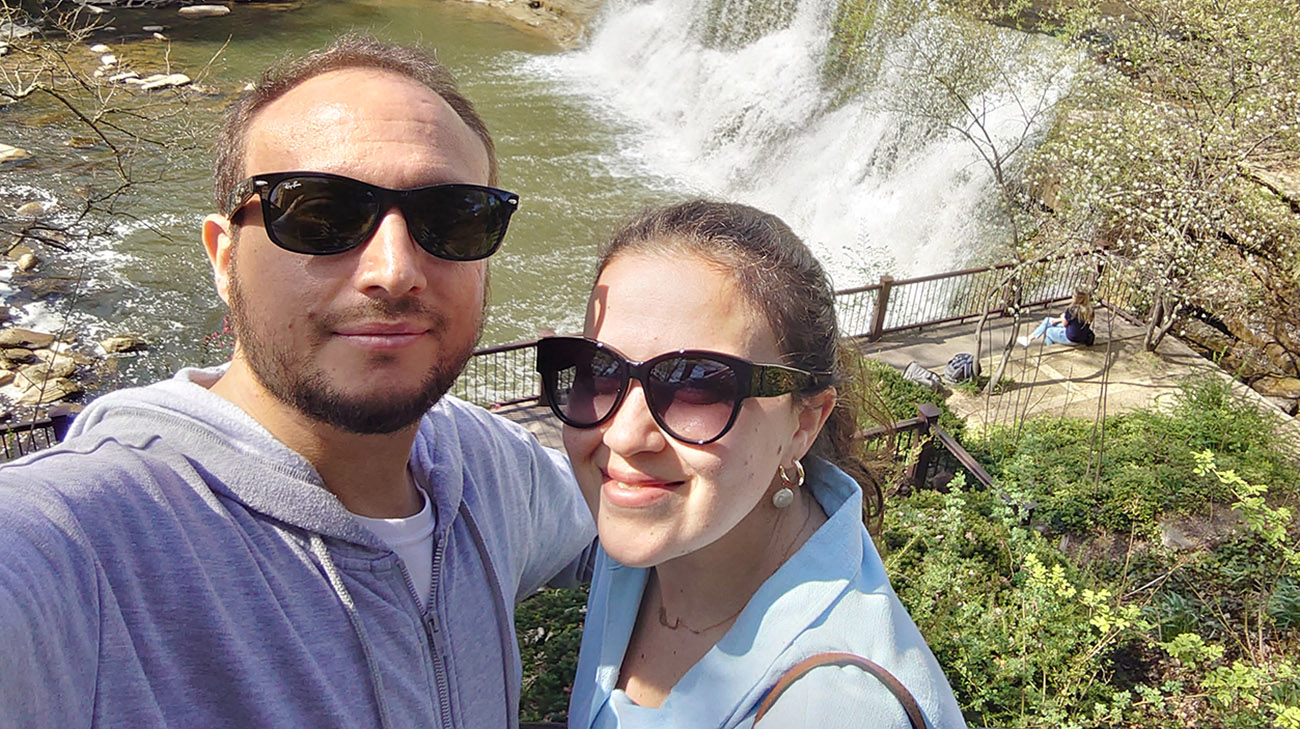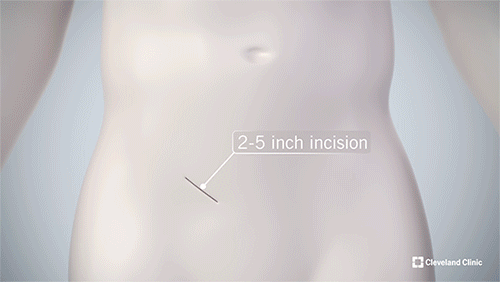
In the aftermath of Ahmad Refaat’s first kidney transplant, about 20 years ago in his native Egypt, he endured severe pain for several days throughout his 10-day hospitalization.
The story was much different in March 2023, when the 38-year-old underwent a second kidney transplant at Cleveland Clinic. He experienced minimal pain with no narcotics. The only medication he received was a low-dose acetaminophen the first couple days after surgery. Ahmad was back home in two days.
“When I woke up from the surgery this time, I thought I must be on pain medication because I didn’t feel any pain at all,” states Ahmad, whose donor for his new kidney was his sister, Lamiaa. “The nurses told me I hadn’t been given anything. They kept asking if I was in pain, but I wasn’t. And I still haven’t taken pain medication to this day.”
What made the difference for Ahmad was an innovative surgical technique surgeons used to make the incision, called the anterior rectus sheath approach (ARS). Devised by a transplant team at Charleston Area Medical Center, whose Kidney Transplant Center is affiliated with Cleveland Clinic, the approach has been further refined in recent years by several members of the Cleveland Clinic kidney transplant team, including Ahmad’s surgeon, Mohamed Eltemamy, MD.

Animation of the "mini-incision" or anterior rectus sheath approach to kidney transplant that involves surgeons making a small incision and cutting between certain abdominal muscles in order to make room for the recipient's donated kidney. (Courtesy: Cleveland Clinic)
According to Dr. Eltemamy, the ARS technique is a “mini-incision” that involves cutting in between certain abdominal muscles in order to make room for the donated kidney. As opposed to a more conventional incision called the Gibson approach, which involves cutting through and resuturing the muscles, ARS is much less invasive. Because ARS includes a much smaller incision, and doesn’t cut into the muscles, the surgery takes less time, recovery is faster and most patients require much less or even no pain medications.
“Because of the size and location of the incision, we’re basically able to just push the muscles aside rather than cutting into them – so it’s much less painful for the patient,” Dr. Eltemamy explains. “Our goal is to get to a point where patients won’t need any narcotics following kidney transplant, and we think that’s a near-future reality.”
It’s been a reality for patients like Ahmad. Based on the results of a Cleveland Clinic randomized clinical trial, the use of ARS was associated with significantly decreased opioid use among inpatients. A report of the findings, co-authored by Dr. Eltemamy, was published in May 2023 in the Clinical Transplantation medical journal.
Cleveland Clinic surgeons use ARS on about 90% of patients receiving kidney transplants. Dr. Eltemamy has high hopes the procedure will begin to be adopted at other transplant centers. Cleveland Clinic is exploring the development of a training program so more surgeons can adopt the use of ARS.
“Like any new technique, there’s a learning curve to go through, but it’s very reproducible,” adds Dr. Eltemamy. “ARS doesn’t require any fancy instruments or an expensive robot. All it requires is practice and getting the necessary specialized retractors.”
Having now recovered from two kidney transplants, two decades apart, Ahmad raves about the improvement in his experience. In addition to the lack of pain, he notes the scar from his most recent incision was only about 1/3 the size of the first one.
“Besides my first transplant, I’ve had other noninvasive surgical procedures, and I needed pain medication for all of them,” he emphasizes. “But not this time.”
Related Institutes: Glickman Urological & Kidney Institute

